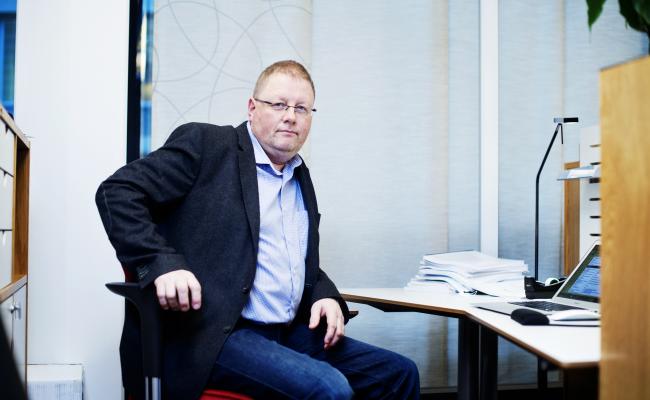Former Swedish Minister to Mediate in Iron Ore Line Matter

Catharina Elmsäter-Svärd, CEO of Byggföretagen and former Minister of Infrastructure, will talk with all stakeholders who use the Iron Ore Line to find new solutions for the use of the sought-after line in the North. (Photo: Byggföretagen).
The crucial Iron Ore Line is characterized by low capacity and significant pressure from several actors. Now, the former Swedish Minister of Infrastructure is to find compromises among those who utilize the railway line between Norway and Sweden in the north.
"The Iron Ore Line, the entire stretch from port to port, is an important part of the Swedish infrastructure. Sweden's competitiveness and industries' need for export and import should not depend on a fragile railway line. Considering Sweden's current situation, not least as a NATO member, the Iron Ore Line's functions will become even more important. This is work I would like to contribute to."
The statement comes from the former Swedish Minister of Infrastructure and now CEO of Byggföretagen, Catharina Elmsäter-Svärd. In a new cooperation with Region Norrbotten, she will mediate and find necessary compromises regarding the sought-after Iron Ore Line.
Low capacity
The Iron Ore Line, or the Ofoten Line, as it is called on the Norwegian side, is a railway that runs from Narvik in northern Norway to Luleå in northern Sweden. The railway line is essential for transporting consumer goods, mail, seafood, and passenger traffic. For mining companies in northern Sweden, such as LKAB, it is crucial for the continuous transport of iron ore products.
The railway line continues to be characterized by low capacity and increasing pressure from several actors. Thus, it is described as a bottleneck for the green shift in Northern Sweden and Sweden's economy.
Double tracks on the railway have long been called for, but it is ultimately a question of costs.
"The lack of capacity is a major problem here and now, while necessary investments are years away. While waiting for increased capacity, one must look for new solutions," writes Region Norrbotten about the new cooperation with the former infrastructure minister.
Region Norrbotten
Region Norrbotten is a self-governing administrative region, funded by taxes, which is governed by a Regional Council of 71 members and 71 substitutes who are directly elected by the inhabitants of Norrbotten.
Source: Region Norrbotten.
Also read (the article continues below)
Will find compromises
More specifically, Region Norrbotten, under the leadership of Elmsäter-Svärd, will work with matters regarding the transport on the line.
"There must be understanding, and solutions must be sought for the freight and passenger traffic that operates on the Iron Ore Line. How do we solve the overbooking problem – that companies book more train routes than they use? How can we achieve increased flexibility so that canceled train routes can be used by others? Elmsäter-Svärd will have an important role in mediating between different interests. The aim is to ensure available capacity to be utilized both efficiently and fairly," writes the organization.
An example of one of the latest issues was the proposal from the Northern Swedish mining companies to pause passenger traffic in favor of transporting the quantities of iron ore products that had built up in storage in the wake of the two recent derailments on the Iron Ore Line.
LKAB's ore train in Narvik. The Swedish mining company sends large quantities of iron ore products daily with the Iron Ore Line to the port of Narvik. Normally, 10-12 of LKAB's ore trains run in each direction every day between Narvik and Kiruna. (Photo: Hilde Bye/High North News).
Furthermore, Region Norrbotten plans to conduct a mapping, analysis, and a report to get a better understanding of the entire line from the Port of Narvik to the Port of Luleå.
"For too long, the Iron Ore Line has been patched up here and there. However, the transport infrastructure is a coherent system and must be managed as such. We hope that Catharina Elmsäter-Svärd can contribute to solving some issues, find compromises, and propose solutions," says Janus Brandin, Regional Development Director.
"Catharina Elmsäter-Svärd was a central person as infrastructure minister in the 2010s and has a good reputation among the affected parties. Now, she can start a dialogue, find the balance between freight and passenger traffic, and look at overbooking and overall responsibility with new eyes. With this decision, Region Norrbotten takes responsibility for the situation that has arisen with competition for capacity," concludes Regional Board Chair Anders Öberg (S) in Region Norrbotten.






